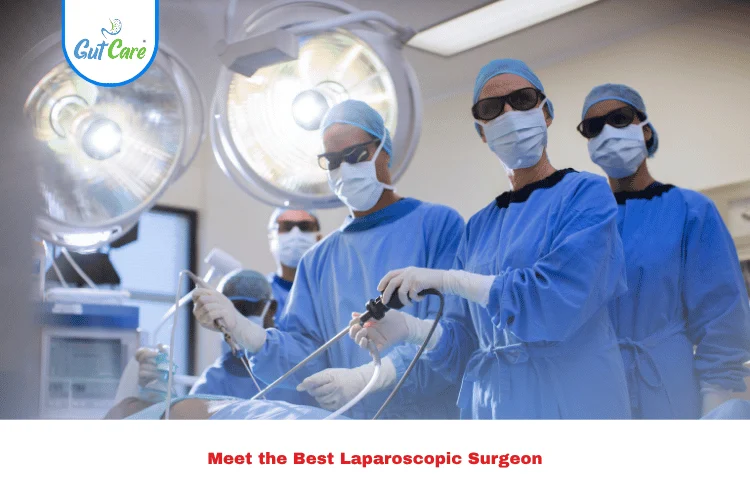Experiencing Femoral Hernia Symptoms can be alarming, as this type of hernia often develops silently and becomes noticeable only when discomfort begins. A femoral hernia occurs when a part of tissue or intestine pushes through a weak area in the upper thigh near the groin. Understanding these symptoms early helps prevent complications and ensures timely treatment. At Gutcare Clinics, Bangalore, Dr. Yuvrajsingh Gehlot, a highly experienced colorectal surgeon, offers advanced diagnosis and care for various hernia types, including femoral hernia.
What Is a Femoral Hernia?
To understand Femoral Hernia Symptoms, it’s important to know the femoral hernia definition.
A femoral hernia occurs when tissue bulges through the femoral canal a narrow passage near the upper thigh that carries blood vessels to the leg. Though less common than inguinal hernias, it is more often seen in women. Early recognition of hernia signs helps in effective management and recovery.
Common Femoral Hernia Symptoms
Recognizing Femoral Hernia Symptoms early can prevent serious complications. Common signs include:
- A small lump or swelling in the upper thigh or groin area.
- Discomfort or dull pain that worsens while standing, lifting, or coughing.
- A heavy or dragging feeling in the groin.
- Pain that spreads toward the leg or lower abdomen.
- In severe cases, sudden sharp pain or tenderness may indicate complications.
If these hernia symptoms persist or worsen, timely consultation is essential.
Why Femoral Hernia Symptoms Shouldn’t Be Ignored
Ignoring Femoral Hernia Symptoms can lead to hernia complications, such as tissue obstruction or strangulation, where the blood flow to the affected tissue is restricted. This can cause sudden swelling, pain, and other discomforts. Prompt medical care ensures early diagnosis and minimizes risks. At Gutcare Clinics, patients receive expert guidance and treatment from Dr. Yuvrajsingh Gehlot, who specializes in advanced hernia care.
Causes and Risk Factors
Understanding hernia causes helps in prevention and early management. Common factors include:
- Weakness in the abdominal wall (often present from birth).
- Heavy lifting or straining during bowel movements.
- Chronic cough or obesity adding pressure to the abdomen.
- Pregnancy, which can weaken abdominal muscles.
- Family history of hernia types or connective tissue disorders.
These factors contribute to the development of Femoral Hernia Symptoms, especially in individuals over 40.
Diagnosis and Evaluation
When Femoral Hernia Symptoms appear, a clinical examination is crucial. A colorectal surgeon may perform physical tests and imaging scans such as ultrasound or CT scan to confirm the diagnosis. Early detection helps in planning the right treatment and avoiding further hernia complications.
Femoral Hernia Treatment Options
Femoral Hernia Symptoms and treatment depend on severity and patient condition. Treatment may include:
1. Observation:
For small and asymptomatic cases, doctors may recommend monitoring under expert supervision.
2. Surgical Repair:
Surgery is the most effective treatment for femoral hernia. The procedure involves returning the bulged tissue to its place and reinforcing the weakened area.
3. Minimally Invasive Techniques:
At Gutcare Clinics, modern laparoscopic and laser-assisted procedures are used for faster healing and minimal discomfort. Dr. Yuvrajsingh Gehlot ensures safe and precise surgical care for every patient.
Prevention Tips for Femoral Hernia
While not all hernias are preventable, you can lower the risk of developing Femoral Hernia Symptoms with these steps:
- Maintain a healthy weight to reduce abdominal pressure.
- Avoid lifting heavy objects improperly.
- Strengthen core and abdominal muscles through light exercise.
- Eat a balanced diet rich in fiber to prevent constipation and straining.
- Seek medical advice early if you notice any swelling or pain in the groin area.
When to Consult a Doctor
If you notice pain in the groin, swelling, or tenderness that doesn’t go away, consult a colorectal surgeon immediately. At Gutcare Clinics, Bangalore, Dr. Yuvrajsingh Gehlot provides expert consultation, diagnosis, and hernia treatment options tailored to each patient’s needs.
Conclusion
Recognizing and addressing Femoral Hernia Symptoms early can prevent complications and ensure effective recovery. Understanding hernia definition, causes, and treatment options empowers patients to take timely action. For reliable diagnosis and safe surgical care, visit Gutcare Clinics in Bangalore, where Dr. Yuvrajsingh Gehlot offers specialized solutions for all hernia types with patient comfort and long-term health in focus.
Frequently Asked Questions (FAQs)
1. What are the early Femoral Hernia Symptoms?
Early symptoms include a small lump in the upper thigh, discomfort while standing, and mild groin pain.
2. How serious is a Femoral Hernia?
If untreated, it can cause obstruction or strangulation, leading to severe pain and swelling requiring immediate medical attention.
3. What causes Femoral Hernia to occur?
Common causes include weak abdominal muscles, heavy lifting, and chronic pressure on the abdomen.
4. How are Femoral Hernia Symptoms treated?
Treatment usually involves surgery to repair the hernia and strengthen the abdominal wall. Minimally invasive methods are often preferred.
5. Where can I get expert treatment for Femoral Hernia Symptoms?
At Gutcare Clinics, Bangalore, Dr. Yuvrajsingh Gehlot, an experienced colorectal surgeon, provides advanced hernia diagnosis and care.




